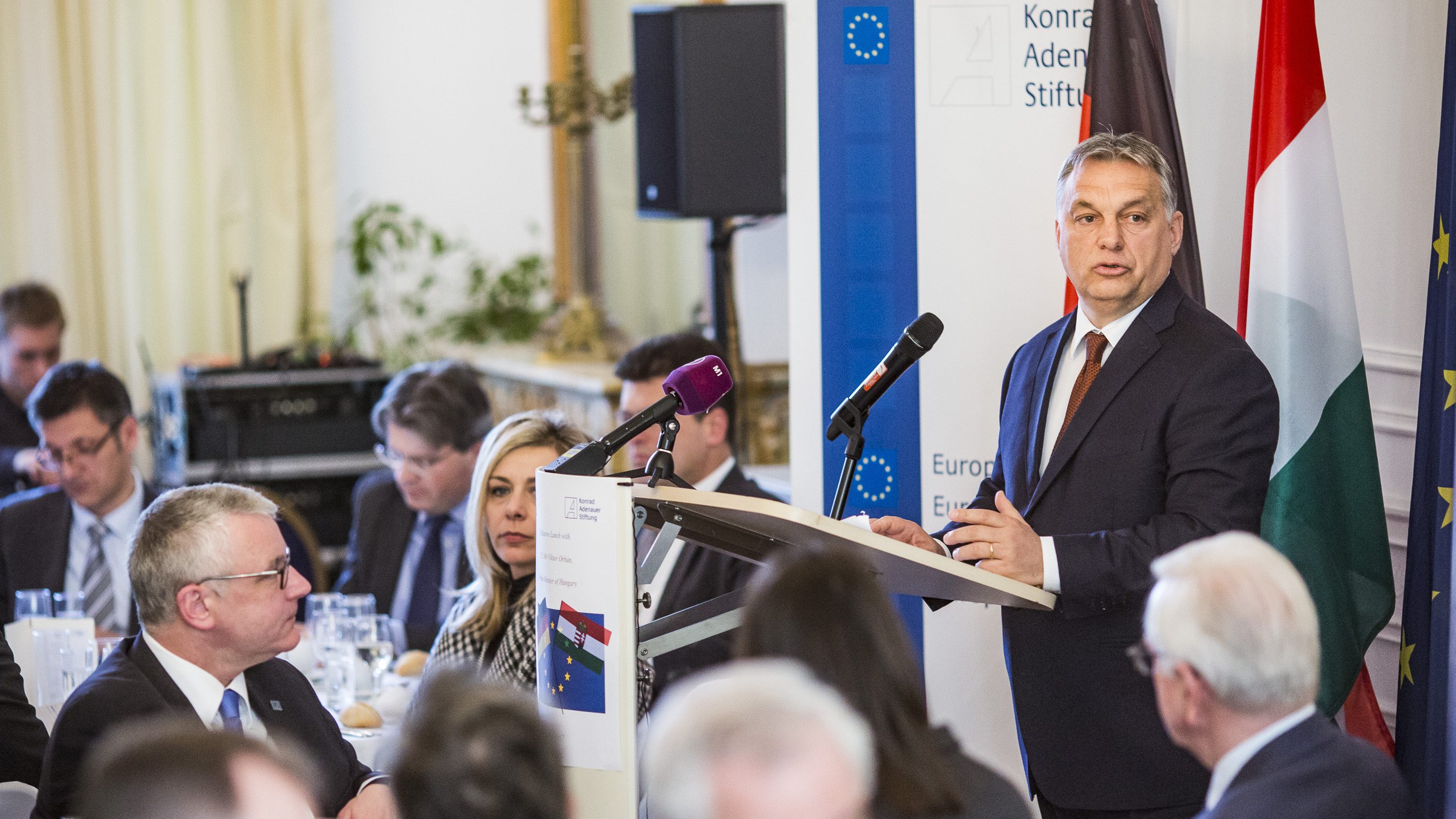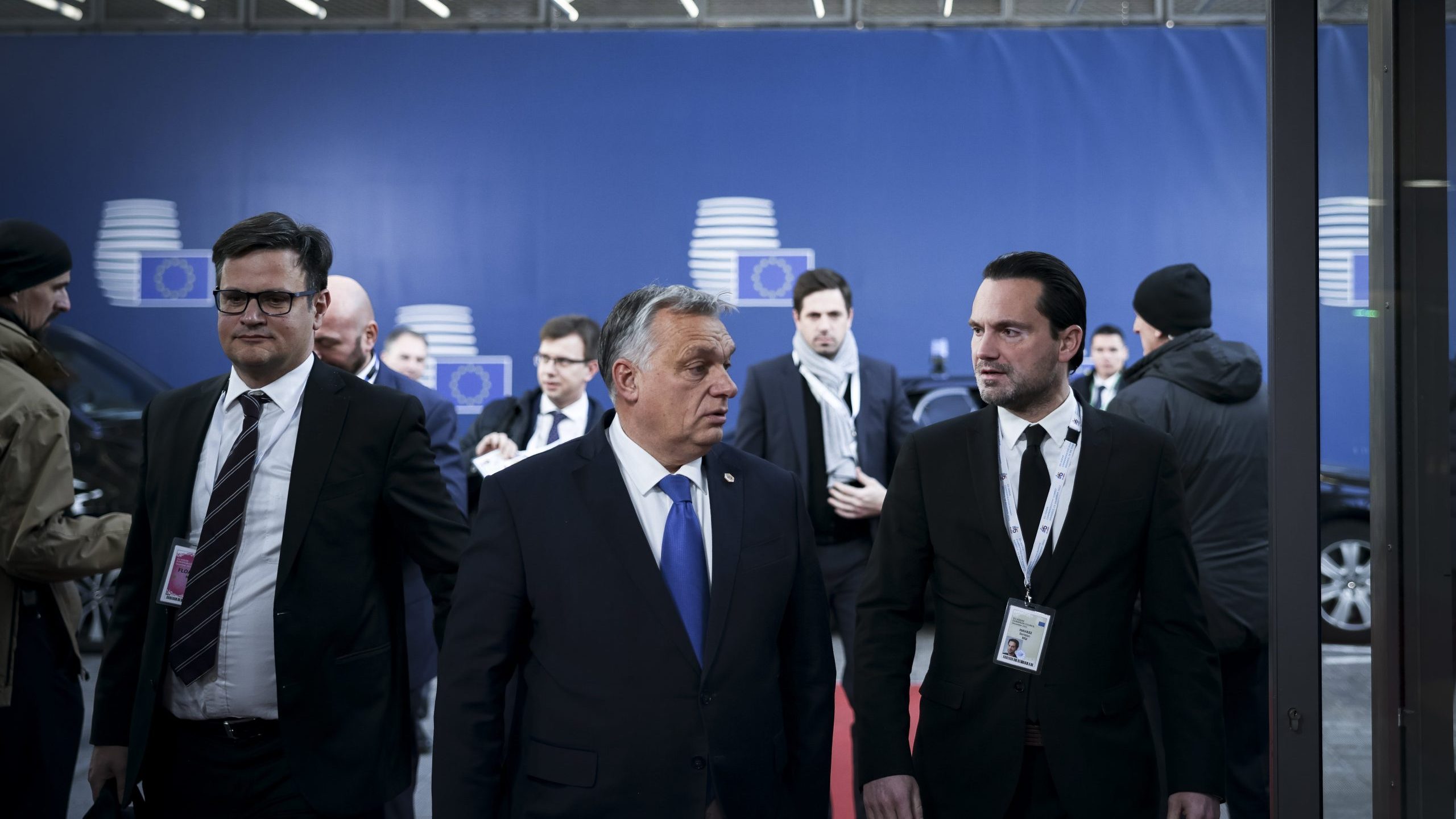
New era knocking on Europe’s door
The Hungarian prime minister said that a new political era is knocking on Europe’s door: instead of “open societies”, people want democratic societies.
Mr. Orbán noted that two decades ago Europe set itself some ambitious goals, but has failed to achieve a single one of them. As examples he mentioned the plan to create a common Eurasian economic region and a plan for an independent European security policy – both of which have failed.
The Prime Minister said that the main question is to what extent Europe and the European Union are ready to adapt to the new European political era. The situation is complex – indeed difficult – and calls for an open and honest debate, he added.
Many European leaders do not accept the need for European politics based on a new geopolitical approach, he said. The core principle of this form of politics will be that “whatever exists is possible”.
Instead of learning from the economic success of China and other Asian countries, Mr. Orbán said, Europe keeps deceiving itself that their success is merely transitory, that it has no foundations, and is therefore not possible. He stressed, however, that “This is silly, because whatever exists is possible”.

It is time to take the new President of the United States seriously
The Prime Minister said that the fact that the United States has a new leader is a decisive element in world politics, observing that it is time to take the new US president seriously.
Mr. Orbán said that, despite the fact that last year the British people decided to leave the European Union, that in December the Italian people gave their verdict in a referendum, and that the world’s leading military power has a new leader, many are still trying to convince the public that what we are observing is not a new reality.
In the Prime Minister’s view, Donald Trump has made a historic statement related to a change in US policy. The essence of this is the right of all nations to put their own interests first. The Hungarian prime minister described this statement as good news, expressing the hope that such a change will occur in the near future, and that the era of multilateral relations will come to an end.
We must prepare for a multi-centred world order
Mr. Orbán stated that we must prepare for a multi-centred world order, saying that there is no single solution that applies in every situation. Instead of multilateral agreements, he said, the emphasis will shift towards bilateral relations.
There was a change of paradigm in world politics after the 2008 economic crisis. Before that the world had a single centre of power, but the system now emerging will be multipolar. As change on such a scale has not taken place in the world, there is no consensus over the nature of this new world political structure, Mr. Orbán said.
Europe is afflicted by crises of competitiveness, demography, security and foreign policy
The Prime Minister pointed out that Europe must face four different crises at the same time: crises of economic competitiveness, demography, security and foreign policy.
The Prime Minister believes that the essence of the foreign policy crisis is that Europe is unable to influence the processes underway in the region – or is only able to influence them minimally. As examples he mentioned the conflicts in Syria and Ukraine.
He reminded his audience that in the next few years economic growth in Europe will be around 1 or 2 per cent. The continent, he said, has been reduced from a global player to a mere regional player – and Europe will soon have to struggle even to remain a regional power.
Europe is not focusing its resources on the right goals
In Mr. Orbán’s opinion, Europe is not focusing its resources on the right goals. It has failed to implement the plans it created, and has become a slave to the utopia of a supranational Europe.
He said that there is no European people: there are only European peoples. He added that Europe was strong when it had several strong centres of power.
He stressed that Europe once claimed global significance, was later reduced to the status of a regional player, and will soon need to struggle to retain even that status. Europe must abandon the very idea that there is a European people, as there are only European peoples. In Europe there are nations, and therefore we can only build on a policy which belongs to these European nations.
Europe needs more self-confidence
Mr. Orbán stated that Europe needs more self-confidence, and must be able to claim that it can protect itself without external assistance. With a common European defence alliance Europe would once again be able to negotiate as an equal partner with everyone – including Russia. Europe can be made competitive again if it abandons the illusion of federalism: Europe must become multipolar. This requires strong Member States, with a strong Hungary among them. This is the guarantee of a strong European Union, he stressed.
The Prime Minister added that to this end a new agreement must be concluded with the United States to replace the now unworkable free trade negotiations. In addition we must seek out opportunities, conclude an agreement with China, and return the issue of Russia to the agenda, the Prime Minister said.
In his welcome speech Hans-Gert Pöttering, former President of the European Parliament and Chairman of the Konrad Adenauer Foundation, said that Europe needs a common foreign and security policy, and that its external borders must be made safe through strong border protection. We need borders which provide refuge for those in need of protection, but which stop economic migration and do not permit anyone and everyone to enter the territory of the EU. A new asylum policy founded on European and Christian values must always respect human dignity. Europe cannot rely on anyone else, Mr. Pöttering said, and it is our responsibility to protect our unique values in the world, which rest on the foundations of freedom, peace, democracy, solidarity and human dignity.


